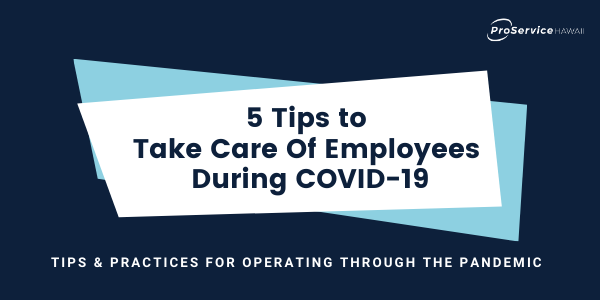In-House HR vs. HR Outsourcing: Pros, Cons, and Costs
Every growing business faces an important question: Should we handle HR in-house or partner with outside experts? This decision affects your efficiency, legal compliance, and costs.
In-house HR teams give you direct control and help maintain your company culture. However, they come with challenges. Hiring and keeping qualified HR staff is expensive. Small businesses and HR teams often struggle to stay current with changing employment laws. Many in-house departments get bogged down with paperwork instead of contributing to business strategy.
Outsourcing HR offers a different approach. When you partner with HR specialists, you gain access to expertise and advanced systems that might otherwise be out of reach. This option can lower your overhead while ensuring professional management of critical functions like payroll, benefits, and compliance.
In this guide, we'll help you compare both approaches. We'll look at the costs and benefits of in-house versus outsourced HR, show which HR tasks are best suited for outsourcing, and provide advice based on your business size. By the end, you'll know if HR outsourcing is right for your company and what to look for in a partner.
What is HR Outsourcing?
HR outsourcing is when a company partners with a third-party organization to handle some (or all) of its HR tasks and functions. The partner organization will not only manage payroll, tax filing, and end-of-service benefits for employees, but it may also play a major role in other important aspects of the business.
You can discuss complex workplace challenges with your outsourced HR partner, who will provide expert guidance and actionable solutions.
The Strategic Advantages of HR Outsourcing
You may wonder why you should consider outsourcing your HR. The decision depends on your company size and how rapidly you want to expand your business.
According to a study by The Society of Human Resource Management (SHRM), more than half of businesses are using outsourced HR. Choosing to outsource your HR can provide you with loads of benefits because most HR service providers have the technology required to perform various HR tasks efficiently. A partner can also improve management and administrative solutions in an effective manner.
In addition, outsourcing your HR could take away a number of headaches when it comes to hiring new people and finding certain types of professionals like managers, skilled labor, IT experts, and software developers. By outsourcing your HR, you don't have to worry about things like payroll and tax return filings. Why? Because an outsourced HR will perform these tasks with high-level accuracy.
But perhaps the most significant benefit of outsourcing comes in the form of time savings for your employees and cost-effectiveness for your business. The more time your managers, business developers, and staff members spend on HR-related issues, the less time they have to think and devise strategies for business growth.
The Real Costs and Rewards of Outsourced HR
Outsourcing your HR can refresh your business development strategies. What’s more, HR professionals can give you the best compliance in employment, immigration, the governing labor laws, and payroll.
A well-functioning HR department will remain on top when it comes to taxation part and complying with the latest laws, whether enforced by the State or Federal Govt.
The Financial Benefits of HR Outsourcing
According to the Bureau of Labor Statistics, the median pay for an HR Manager in 2022 was $126,230 per year, or $60.69 per hour. This substantial investment represents just one position, without accounting for additional specialists you might need as your business grows.
Most HR outsourcing solutions cost significantly less than hiring even a single HR manager. In return, you receive an entire team of specialists focused on different aspects of HR management, plus access to comprehensive HR technology platforms that would otherwise require separate investments.
ProService Client Savings
Our clients consistently report significant savings and improvements:
- Healthcare Cost Reduction: Save up to $1,000 per year per employee on healthcare costs
- Premium Benefits Access: Enjoy big business benefits at small business prices through our exclusive HMSA and Kaiser Permanente healthcare plans
- Productivity Boost: Reclaim approximately 20 hours each week to focus on your core business operations
When comparing these savings with the costs of maintaining in-house HR staff, the financial advantages become evident. Businesses partnering with ProService typically achieve substantial cost reductions while gaining access to deeper expertise and better technology than they could afford independently.
Core HR Functions Perfect for Outsourcing
An in-house HR team can quickly become overwhelmed by paperwork and competing deadlines – especially if a business is growing. Outsourcing is an excellent way for you to complete a number of common HR tasks in a relatively short period of time. An outsourced HR will give you the most value for building strong in-house working teams and hiring and developing company culture.
Here are some commonly outsourced tasks that can be easily transitioned to an outside company.
Payroll and Tax Services
Payroll management is one of the most popular services to outsource. An outsourcing partner will provide your business with dedicated professionals to calculate salaries, make taxation figures, and complete tax obligations permissible within the state laws.
All HR companies also have their own compliance processes in place, automatically ensuring your essential reports are trustworthy and reliable. Some HR companies will even share online payroll reports, offering businesses a great deal of convenience.
Employee Benefits Management
HR companies are an ideal way for you to seamlessly manage the complexities of health insurance, 401(K) plans, commuter benefits, etc. These companies also cover employee rewards and other recognition programs that may be a part of your company structure, which can significantly improve sales, security, and performance.
Furthermore, HR companies may provide your business with access to benefits that only an enterprise-level company can afford.
Employment Law Compliance
Your company must comply with various state and federal laws that are unrelated to updating payroll. These may include training, compliance, new hiring processes, and other working regulations. HR companies will work on your behalf to ensure that your business is complying with these laws to steer clear of any trouble.
EAP (Employee Assistance Program) Solutions
EAP is another area where HR companies can help your business out. These programs address the more private personal or work-related problems many employees have, like stress, financial strains, family issues, , or mental health challenges.
By providing your employees with EAP access through an outside HR company, you can make sure they have all the tools they need to remain healthy and happy on the job.
Fully or Partially Outsourcing HR Functions
You may choose to outsource part of your HR functions or all of them. Partial outsourcing means you and the partner company share the HR functions along defined lines. Full outsourcing means the partner company assumes all HR responsibilities for your business. Your HR partner will coordinate directly with benefits vendors and HR suppliers to streamline these relationships and reduce administrative burden.
Whether you choose partial or full outsourcing, HR partners consistently deliver these essential services:
- Background screening
- Payroll services
- Risk management
- Temporary staffing
- Employee Assistance Program
- Health care benefits
- Retirement planning
- Performance management
- Drug screening
Is HR Outsourcing Right for Your Business Model?
You can use a variety of metrics and methods to assess what size of business would most benefit from outsourcing to an HR company. Here are a few guidelines.
Small Businesses: 0-10 Employees
A small business is not as easy to manage as it might seem – especially when all normal HR functions are still required despite there being a smaller staff. The truth is that managing sales and expanding a clientele base are sometimes more urgent tasks than keeping tabs on payroll for accuracy or checking compliance to tax laws. Getting an HR company to take care of these things would be a wise choice for many small businesses with limited resources. These companies can give small business owners the freedom to focus solely on growing and taking care of their business.
A professional employer organization (PEO), which is a firm that provides outsourcing services to small- and medium-sized businesses, will help you automate your payroll, maintain your compliance methods, and give you a variety of other HR tools and services by certified HR consultants – all at an economical cost. Plus, the software used for small-scale businesses allows for more efficient management of teams.
Engaging an HR company for PEO services will also give your employees more time to work better, and they may bring better ideas to the table, leading to positive business growth.
Hence, your focus would be more on managing your business team, not worrying about whether they are getting timely paychecks.
PEOs will further go a step ahead and ensure compliance with the local, state, and Federal laws while doing the payroll and filing tax returns.
Growing Businesses: 10-50 Employees
Growing businesses have an increasing number of employees, which means more staff members may be required to keep HR running. Staying fully compliant with industry norms also becomes absolutely mandatory, which is why getting the help of a professional HR company at this stage could be a wise decision.
If your HR manager is using PEO software that helps in managing payroll, employee benefits, and taking care of compliance, then they can focus on the environment and recruiting without any hiccups. Nonetheless, you can still use HR members for other things that cannot be managed through software or cannot be automated at all.
Therefore, for this size of business, staying compliant becomes a major issue as more people on payroll need to be paid, and hiring goes on at the same time. So engaging a PEO or HRO company will offset your worries for compliance issues.
Mid-Sized and Large Businesses: 50-500 Employees
As you might expect, larger businesses have larger amounts of funding and are usually set to scale up rapidly. These business owners may be planning to grow from a team of 50 members to 100 or 200 employees, which increases the demands on their existing HR infrastructure and also shifts the focus to recruiting.
A growing business can create further issues of concern regarding compliance and may lead to the creation of a full-in-house HR department, as payroll experts may be costly and often unnecessary.
Furthermore, you may start looking for someone in the company to come forward to handle HR duties in an efficient and effective manner. This will include handling HR projects, such as conducting healthy training programs, writing a company manual for employees, etc., to make the company better.
Sure, having an in-house HR department allows you to perform company-specific tasks, which can be highly beneficial for companies that operate under one roof.
Despite all this, there remains an empty slot for an outsourced HR company to step in. Outsourcing the payroll or getting the best software will help you save a lot of money and time. This will save your HR department time, which they can use on other projects. A PEO will be a great addition.
Companies with 500+ Employees
It would be fair to say that companies with 500 or more employees are quite similar to most medium-sized companies. The main differentiator is that they often have an in-house HR department. However, no matter how big an organization is, having an HR department is always beneficial as it helps delegate important tasks, allowing employees to focus on more pertinent tasks.
Hence, keep your in-house HR people focused on finding the right talent, devising strategies, and creating a well-knitted environment for the rest of the team for seamless coordination. At the same time, let an outsourced HR look after other matters.
What Are Your HR Outsourcing Options?
There are three main types of HR outsourcing companies:
- Human Resources Organizations
- Professional Employer Organizations
- Administrative Services Organizations
1. Human Resources Organizations (HROs)
HROs will provide some or all of your business’ HR requirements, depending on how you have outlined the services in your contract. Most HROs will come up with easy options for companies of all sizes by offering their services on a selective basis, where each business can choose exactly which functions they need.
Once you engage an HRO for any type of HR service, you should be able to trust that they can discharge their tasks in a professional manner. Most HROs are staffed by industry professionals who use their know-how, experience, and best software to deliver timely projects, but it is recommended that anyone looking for an HRO make a thorough, detailed, and in-depth search prior to selecting a partner
2. Professional Employer Organization (PEO)
PEOs lease employees to employers. A PEO will then manage all employee-related functions like payroll, recruitment, including previous working history, responsibilities, and their professional liabilities they are engaged to perform. The actual employer becomes an on-site employer, and PRO remains the employer for the record. The PEO remains responsible for workers' compensation and taxes, etc.
You might use a PEO if you operate a small- to medium-sized business (under 200 employees) as a way to minimize the risk for both the company and PEO. PEOs can exercise their right to reduced or lower rates on retirement packages and other health benefits by clubbing together employees from all their previous and current clients.
3. Administrative Services Organization (ASO)
ASOs provide administrative services like payroll, deposits, and filing taxes, as the name implies. When you choose an ASO for outsourcing, you’re choosing to outsource the administrative side of HR. There is no employment-sharing relationship between the engaging and engaged party, and you will still be responsible for all risks and liabilities with regard to employment.
An ASO performs all services under your business's Employer Identification Number (EIN). Furthermore, an ASO also extends help when it comes to things like compliance, legal concerns, accessing insurance, workers compensation, and other medical benefits.
All these services and costing are weighed by your employee base and risks attached to their retention.
ASOs are ideal for businesses with 50 or more employees and those with employees in other states, whereas PEOs serve businesses with less than 200 employees and are preferred for HR needs that go beyond the administrative. However ASOs generally cater to fewer employees and so can be better for smaller businesses of 1-50 employees.
ASOs provide:
- Workers compensation
- Compliance
- Safety management
- Payroll services
- Pension administration
An ASO is different from PEOs who use their own FEIN status.
Choosing an Outsourcing Company
If you’re a small business, a PEO is generally the best option. A PEO shares the burden of risk with you, and has an added bonus of also taking over some or all of the HR tasks.
At the same time, some businesses will find it convenient to outsource the administrative part of ASO, which is quite catchy like PEO.
There are certain elements you must consider before selecting any company for outsourcing your HR department.
- Previous records
- Performance track records with metrics and their successful completion
- Compliance certificates
- Cost of services
- Assurance or guarantee for the level of services
- Flexible contracting options
A PEO will help you find clarity about benefits for outsourcing HR, in part or full, depending upon your choice and requirements.
Conclusion
If you’re trying to manage a business without sufficient manpower and you don't have enough staff members to complete the business cycle in an efficient manner, it’s probably time to consider outsourcing your HR department to a credible PEO.So, outsourcing HR has more benefits for giving timely solutions and addressing the issues through their industry experts and a team of professionals.
Moreover, outsourcing HR will give you time to refocus on generating more revenues. Whereas it will help you control costs, reduce paperwork, maintain a trusted advisor for employee issues and better compliance methods in place









